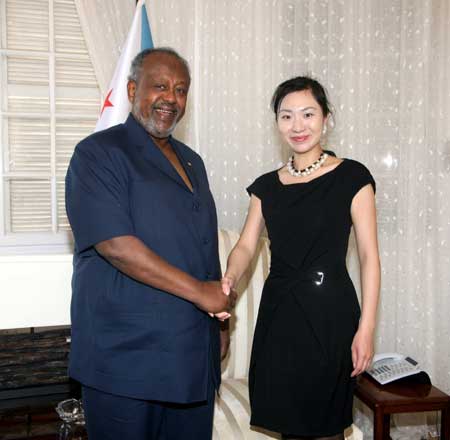The enlightenment of Helen Hai
 |
|
Photo Provided to China Daily |
She often recalls her first day in Ethiopia, when she took a walk in the rose garden of the Sheraton, Addis Ababa, the best hotel in the capital. She looked through the beautiful rose bushes and saw curious faces of street people peeping through the fence. At that moment, she suddenly flashed back to her childhood, when her father took her to Beijing and wanted to stay in a five-star hotel to celebrate her seventh birthday.
"I remember very clearly when we checked in, my father asked how much a room is, and they said $100. My father said immediately: 'It's too expensive', and took me out of the hotel. At that moment I turned my head around and saw all the European people in the lobby. I thought: this is a completely different world."
Hai began to wonder: outside the fence, the local people who cannot afford to stay at a five-star hotel, do they have the same feeling as she did nearly 30 years ago?
Hai always stresses that she is lucky to be a beneficiary of China's reform and opening-up.
Born in Changchun, Jilin province, in 1978, she climbed the ladder to become the youngest chief actuary in Britain; then vice-president of Huajian shoe company in Ethiopia; and now the Chinese consultant to the Ethiopian government.
"Many people ask me, why did you come to Africa? I was born in the 1970s, and people who were born about that time don't believe in God or Buddha, even Communism. I represented a typical group of people working hard but, after a certain stage, also looking for a purpose."
She found her purpose by accident. Right after she started the shoe factory in Ethiopia, she met Justin Lin, chief economist for the World Bank, who told her: "What you are doing here is just business. You need to make it into a development case."
"This is when I realized the significance of what I was doing," she says. The following month, Lin invited her to the World Bank to give a speech. At that time, everyone was talking about the "Washington Concensus", and few bought Lin's theory. "With my example of Huajian, people began to believe him," Hai says.
Hai is now working with Lin to attract more labor-intensive business to Africa. "I have already experienced a lot of things in Europe. If I can leverage everything I know about China and the West and make some successful development cases in Africa, then I can play a tiny role."
















